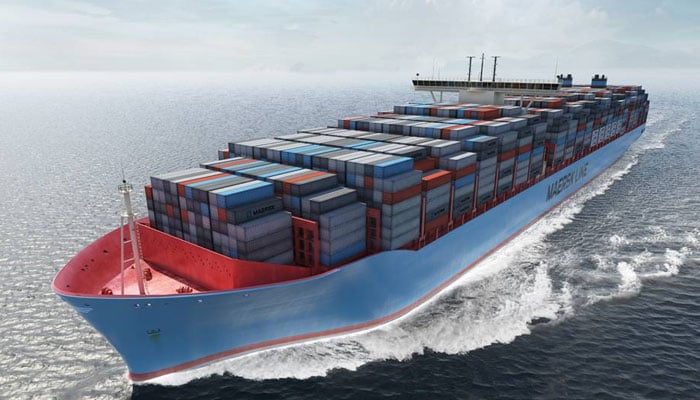Paradox of celebrating surpluses, regretting deficits
Current account surpluses/deficits are not an end/achievement in themselves. Rather, they are means to an end. In absolute sense, having surplus is indeed excellent. But, the problem starts when we think having such surpluses is some ultimate achievement in itself, and that the economy has been completely turned around. Unfortunately, this is not the correct way of looking.
For instance, we regret deficits while celebrate surpluses, mostly in isolation, where in fact the deficits may be incurred due to high economic growth (which is absolutely fine, and actually good when economy does not have enough capacity to fulfill domestic demand). So, imports satisfy demand that cannot be met through domestic means, hence higher chances of incurring large deficits, setting aside borrowing-consuming debate for a while.
On the other hand, surpluses may be achieved by compromising on growth (when the economy is slow and in a low-growth trap for a while). There is low investment, fewer jobs and very high inflation, which is Pakistan's present case – stagflation/low-growth-high-inflation.
Therefore, celebrating surpluses or regretting deficits are not always the right approach. That’s because we have to look at the entire context e.g. why we are having deficits and why surpluses, what's the cause - whether it is slowdown in growth and investment, or the surplus is with high growth and investment, leading to exports too.
If you dissect the recent months’ numbers, you would see our trade deficit still high while remittances single-handedly are funding the current account – shift to formal channels due to Covid-driven limitation on movements – turning CAD into surplus. It is not through exports growth.
Further, if remittances are driving country's current account surplus, then we cannot really relate it to turnaround in our economy either. That's because growth in remittances largely means (in a normal scenario) that either we are exporting higher workforce and/or there is a better growth in other economies where our diaspora/overseas work, get better earnings and send more back home.
Finally, what would be truly positive, reflective of an economic turnaround and a real source of celebration (from external account view), would have been if we had achieved trade surplus where our exports would have been outgrown our imports in value terms, and that on a sustainable basis too. And, foreign exchange reserves would have been increased due to sustained foreign direct investment and exports, rather than through large amount of debt rescheduling/deferment/aid etc.
With changed approach and mindset, the results will surely be different and sustainably better.
The writer is CEO at Alpha Beta Core Solutions.
-
 Paul Anka Reveals How He Raised Son Ethan Differently From His Daughters
Paul Anka Reveals How He Raised Son Ethan Differently From His Daughters -
 'A Very Special Visitor' Meets Queen Camilla At Clarence House
'A Very Special Visitor' Meets Queen Camilla At Clarence House -
 Jodie Turner Smith Shares One Strict Rule She Follows As A Mom
Jodie Turner Smith Shares One Strict Rule She Follows As A Mom -
 Hailey Bieber Reveals KEY To Balancing Motherhood With Career
Hailey Bieber Reveals KEY To Balancing Motherhood With Career -
 Photo Of Jay-Z, Other Prominent Figures With Jeffrey Epstein Proven To Be Fake
Photo Of Jay-Z, Other Prominent Figures With Jeffrey Epstein Proven To Be Fake -
 Hillary Clinton's Munich Train Video Sparks Conspiracy Theories
Hillary Clinton's Munich Train Video Sparks Conspiracy Theories -
 Fans Slam Talk Show Host For 'cringe' Behavior In Chris Hemsworth Interview
Fans Slam Talk Show Host For 'cringe' Behavior In Chris Hemsworth Interview -
 Woman Jailed Over False 'crime In Space' Claim Against NASA Astronaut
Woman Jailed Over False 'crime In Space' Claim Against NASA Astronaut -
 James Van Der Beek’s Close Pal Reveals Family's Dire Need Of Donations
James Van Der Beek’s Close Pal Reveals Family's Dire Need Of Donations -
 Prince William And Harry's Cousins Attend 'Wuthering Heights' Event
Prince William And Harry's Cousins Attend 'Wuthering Heights' Event -
 Hailey Bieber Turns Heads Just Hours After Major Business Win
Hailey Bieber Turns Heads Just Hours After Major Business Win -
 King Charles' Andrew Decision Labelled 'long Overdue'
King Charles' Andrew Decision Labelled 'long Overdue' -
 Timothee Chalamet 'forever Indebted' To Fan Over Kind Gesture
Timothee Chalamet 'forever Indebted' To Fan Over Kind Gesture -
 Columbia University Sacks Staff Over Epstein Partner's ‘backdoor’ Admission
Columbia University Sacks Staff Over Epstein Partner's ‘backdoor’ Admission -
 Ozzy Osbourne's Family Struggles Behind Closed Doors
Ozzy Osbourne's Family Struggles Behind Closed Doors -
 Dua Lipa Claims Long-distance Relationship 'never Stops Being Hard'
Dua Lipa Claims Long-distance Relationship 'never Stops Being Hard'




